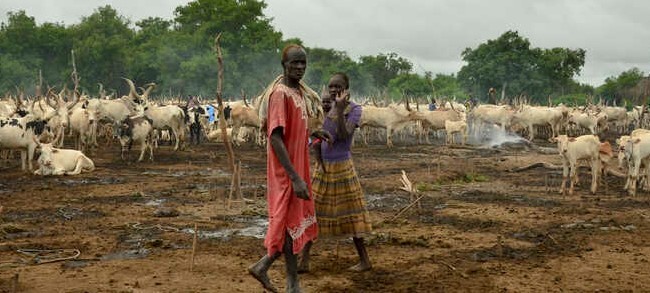Cattle keepers from Jonglei State who graze their animals in Kajo-Keji County of Central Equatoria State have started returning home as farmers in the area complain about cattle destroying their farms.
Last week, local authorities in Kajo-Keji County issued an order for cattle herders from Jonglei State and Terekeka County of Central Equatoria State to vacate the area within a period of seven days as farmers begin farming activities.
Abraham Makur, secretary-general of the Jonglei cattle herders, Radio Tamazuj on Friday that the pastoralists have started vacating Kajo-Keji County, saying the move is in line with the order issued by the county commissioner to promote agriculture and peaceful co-existence in the area.
“There is a positive outcome on the side of the cattle herders, they are now moving out. So far, 13 cattle camps have left and I am sure by Monday next week, all cattle herders will be out of Kajo-Keji because all of them are going back home,” he said.
Makur calls on the Kajo-Keji farmers to resume farming activities in the area since the pastoralists are leaving the area.
Anyik Chaplain, a youth leader and a farmer in Kajo-Keji County, confirmed that most of the cattle herders have left several villages.
“We have confirmed from different areas especially in Kanyapo 1 and 2, Lire, Liwolo and Nyepo that many of them are moving out of Kajo-Keji. Currently, the fears have reduced and farmers are returning to their farmlands preparing their gardens for planting crops. This is a good move to us the farmers in Kajo-Keji County,” Chaplain said.
For his part, Kajo-Keji County Press Secretary Charles Wani also confirmed that the pastoralists have left several villages travelling towards Jonglei State.
“They have started going in large numbers and I have confirmed today, so all of them will cross to that side of Kaya. But right now, I can say they have left all the farmlands,” Charles concluded.




